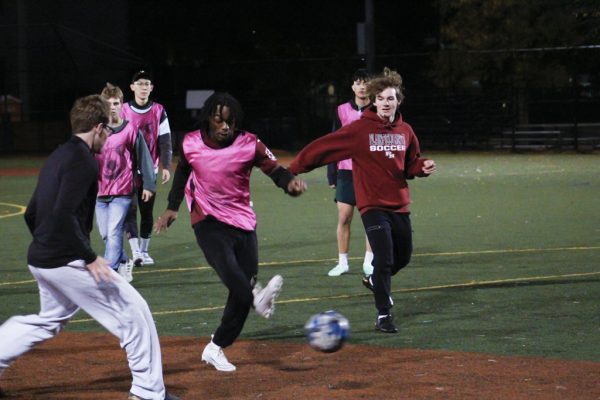Laquan not honored through Laquan McDonald Act
October 31, 2016
Two years after Laquan McDonald was shot 16 times and killed by a Chicago police officer, the Laquan McDonald Act has been introduced to offer a way to remove Mayor Rahm Emanuel from office, whom many think must take responsibility for McDonald’s death.
The legislation, introduced by Illinois State Rep. Kenneth Dunkin, would allow for the recall of several Chicago officials as well as Emanuel, who was criticized for his role in covering up dash-cam video of the shooting and currently cannot be recalled under state law. The legislation has the support of many Black Lives Matter activists, including Will Calloway, who helped draft it.
This is not the first time such legislation has been introduced. State Rep. La Shawn Ford introduced similar legislation in January, according to a Jan. 4 article from DNAinfo.
Dunkin’s true objective in the introduction of his version of the legislation is maybe destabilizing Chicago government and exacting revenge against the Democratic organization that slated another candidate against him in the March primary, leading to his defeat. For this reason, the use of McDonald’s name in this newly introduced act is completely inappropriate.
One reason for Dunkin being ousted by his party is that he sided with Gov. Bruce Rauner on several issues, including refusing to support attempts by Democrats to overrule Rauner on issues with spending on child care and services for the elderly and disabled in November 2015, according to a Nov. 11, 2015, Chicago Tribune article.
Dunkin and Rauner have something else in common: their antipathy toward Emanuel, which explains why Rauner stands to gain the most from the passage of this act. When Ford introduced the previous recall bill, Rauner said he was “very disappointed in the mayor” and vowed to sign any legislation allowing a recall, according to a Jan. 5 Chicago Tribune article.
While Rauner’s criticisms of Emanuel may seem valid, they are most likely designed to win political points for the governor, who in May was named in a poll as the sixth most unpopular governor in the nation. Emanuel is a political obstacle to Rauner’s agenda, which includes slashing funding for the Chicago Public Schools and dropping to a $10 minimum wage.
No one doubts that the Black Lives Matter activists who are involved in this legislation are sincere in their motives. But there is a problem in the way the legislation is written that suggests political gamesmanship is at work.
The legislation would make it incredibly easy for anyone to recall Chicago’s mayor. All that is necessary is a petition drive that receives signatures equivalent to 10 percent or more of the total votes in the last mayoral election, and then a special recall election will be held, according to an Oct. 20 DNAinfo article.
This is an extremely small margin that would discourage many from running for mayor and make governing impossible.
Because the act is unlikely to pass, Emanuel will likely serve the rest of his term. However, Chicagoans should not see this as a setback in the fight against police brutality and corruption in Chicago. Instead, it is their responsibility to continue advocating for holding Emanuel and the CPD accountable for the remainder of his term.
If people are dissatisfied with what Emanuel has done in office, the best way to cut his career short is to fund a candidate to run against him in the next election who has a chance to succeed.
Dunkin has no business introducing politically expedient legislation in McDonald’s name. While Chicago officials must be held accountable for tragedy, Illinois politicians must also be held accountable for their motives.







